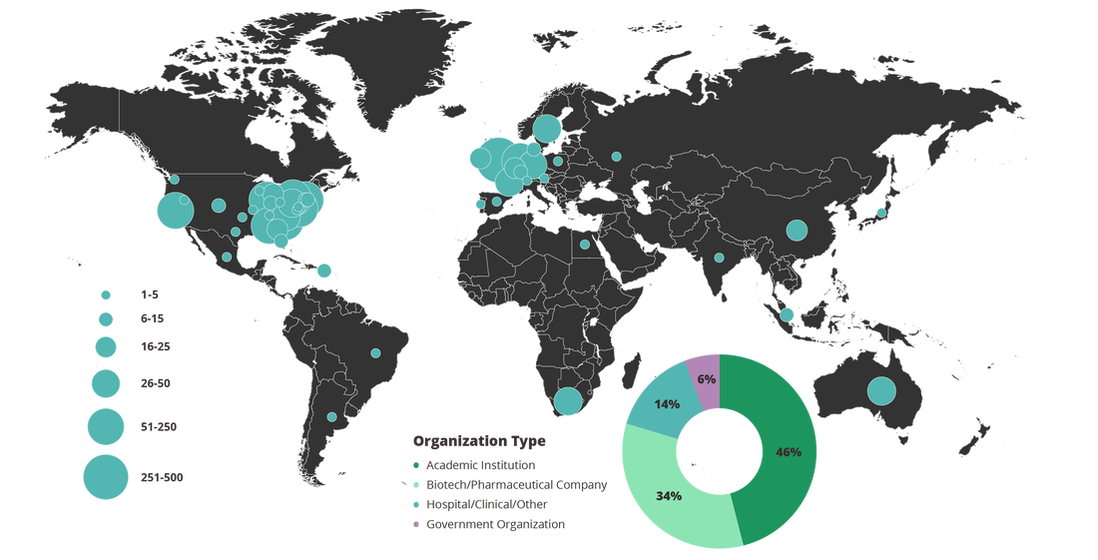|
We're holding a free virtual event this year as a part of the Freezer Challenge competition! Since you've already joined the competition this year, you're absolutely invited. And, there's no need for you to register, just mark your calendar and use the zoom link below to join on May 26. This will be an interesting conversation with representatives from the six Freezer Challenge sponsor companies, all of which play an important role in the laboratory cold storage market: Eppendorf, Stirling Ultracold, Thermo Fisher Scientific, PHCbi, Elemental Machines, and B Medical Systems. We are organizing this event to encourage even more labs to sign up for this year's Freezer Challenge. It will also be a great opportunity to ask your most pressing questions! Join us for this moderated panel discussion, which will touch on the size and impact of the cold storage market, how Energy Star certification came to be for ULT freezers, the future of energy efficiency for lab freezers, how COVID19 has impacted the cold storage industry, and an overview of the Freezer Challenge for those new to the program. We hope you can join! Event Zoom Link for Freezer Challenge Participants ---- People not already registered for the Freezer Challenge can sign up for this free event here on Regfox. Finally, check out this blog post Stirling Ultracold recently put up on their website all about the Freezer Challenge. Thanks Stirling Ultracold for sharing this with us!
5 Comments
There's just two months left of the 2021 Freezer Challenge. Have you done all you can on the scoresheet? Are there still labs at your research institution that had planned to sign up that haven't yet? Now is a great time to assess what you've done and commit to at least one more action in the next two months.
Who will win the Freezer Challenge this year? Could it be your lab or institution? A few reminders: we will NOT be extending the Freezer Challenge competition deadline this year, so aim to have your scoresheet done by July 1. If you are having trouble accessing your scoresheet, email us at info@mygreenlab.org. You must submit your scoresheet back to us in order to earn points and be a part of the competition. You do that by clicking "finish" on the final page of the scoresheet when you are done working on it. Many thanks to all of you for being a part of this annual effort to promote energy efficiency, sample integrity, and sample accessibility with cold storage in science. We have over 200 labs registered for the competition now! And finally, thanks to the corporate sponsors, listed below, that make the Freezer Challenge possible. Partha Krishnan and Darren Cornell of Sanofi Pasteur pictured with Nathalye Terrero-Martinez from Thermo Fisher. This ULT Freezer is set to -70 C. Hello again Freezer Challenge competitors! Today we bring you an inspiring story from a group participating in this year's competition: the Sanofi Pasteur R&D group in Cambridge Massachusetts. They reached out to us and wanted to share the progress they've made this year, and we hope this will inspire you to continue dedicating time and energy to the Freezer Challenge and laboratory sustainability efforts more generally. Sustainable lab initiatives implemented at Sanofi Pasteur R&D, in Cambridge Massachusetts in the United States Written by Partha Krishnan Green Purchasing: We have partnered with Finance and Purchasing to put a system in place where orders for new freezers are funneled through the EHS department for sourcing of freezers with lower Global Warming Potential (GWP). We have also partnered with Eversource (our local utility company) to get credits for the purchasing of new energy efficient freezers. "Chilling Up" ULT Freezers: Thanks largely to the evidence-based resources available through My Green Lab, we were able to convince the lab heads that a bulk of our -80 C freezers can be set to -70 C with no concerns of losing sample integrity. Inventory and Maintenance: We now have a dedicated team to perform periodic maintenance of freezers and another dedicated person to perform freezer inventories. This has made a huge difference in getting freezer management under control. Development of a Site Green Team: Our Green Team is completely organically grown with new members recruited solely by their motivation to make the site green! Some recent achievements by the team are switching to all compostable cups and cutlery at the cafeteria and increasing recycling in labs. Take-Home Message: Small consistent steps taken in the right direction lead to huge sustainable gains down the road rather than a big overnight strategy that might fail! “ You don’t have to do a lot to do a lot.” Everyone still has a little over two months to dedicate to the Freezer Challenge --keep up the great work! Unlike in previous years, we do not have any plans to extend the deadline for this year's challenge, so be sure you submit your scoresheets back to us by July 1 by clicking "Finish" on the final page. Your scoresheet will not count unless you have submitted it back to us!
You are able to access and modify your scoresheet as many times as you want between now and July 1. When you try to access your scoresheet, if you get a message from Brilliant Assessments saying you can no longer access your scoresheet, this probably means you accidentally submitted it back to us too early. Email info@mygreenlab.org if you need us to reopen your scoresheet so you can continue editing! Continue to reach out if you have questions or issues! Welcome to this next installment of the Freezer Challenge Blog! You'll periodically see messages such as this between now and the end of the challenge on July 1. We now have over 150 labs from 18 different countries participating in this year's competition. Amazing!
There are three months left of the Freezer Challenge, still giving you plenty of time to implement sustainable, efficient, and energy saving actions with your lab's refrigerators and freezers. Remember, you don't have to do all of the actions on the scoresheet - do what makes sense for your lab, what you have time for, or what you wish to prioritize. The more actions you take, the higher your score (and likely higher energy savings too). If you haven't already, it may be helpful to make a plan with your lab on how to tackle the remaining three months of the Freezer Challenge. And if you haven't yet enlisted others in your lab to help you, now is a great time to reach out! Here are some ideas of how to approach the next few months:
The Freezer Challenge scoresheet is designed so you can return to it as many times as you want between now and July 1. When you try to access your scoresheet, if you get a message from Brilliant Assessments saying you can no longer access your scoresheet, this probably means you accidentally submitted it back to us too early. Email info@mygreenlab.org if you need us to reopen your scoresheet so you can continue editing! Good luck! Compete for the "Top Organization" Awards by encouraging your colleagues to join the challenge too!3/3/2021 Two months into the 2021 Freezer Challenge, My Green Lab and I2SL hope that you are making progress through your scoresheets and feeling accomplished as you implement best practices that benefit energy conservation, sample access, and long-term sample integrity.
The graph above is a snapshot of the labs that have registered for the Freezer Challenge as of the end of February by country. Already 121 labs have registered! But if the numbers from your region of the world seem a bit light, why not tell some of your colleagues at your research institution or beyond about the Freezer Challenge too? There are two categories of awards for the Freezer Challenge - those that go to individual laboratories that take significant action with their cold storage units, and awards that go to entire research institutions. These "Organizational Awards" can only be won if multiple labs from the same institution compete in the Freezer Challenge! Tell colleagues in your department, college, floor, or research area about how to join the Freezer Challenge too, if you want to be in the running for the Top Organization Awards. Remember you can also pull text and images from the media kit we have put together (at the bottom of the Freezer Challenge Resources page) to share via email or social media with your colleagues. Also, if you haven't checked out the articles on the Resources page, go for it! Many thanks to all of you for helping to make this Freezer Challenge the most impactful one yet! |
Archives
May 2021
Categories |
The Freezer Challenge is a program coordinated by the non-profit organizations
My Green Lab® and the International Institute for Sustainable Laboratories, and sponsored by various companies with an interest in promoting the most energy efficient cold storage options.
My Green Lab® and the International Institute for Sustainable Laboratories, and sponsored by various companies with an interest in promoting the most energy efficient cold storage options.
Global Reach of the 2023 International Laboratory Freezer Challenge
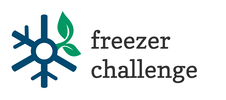

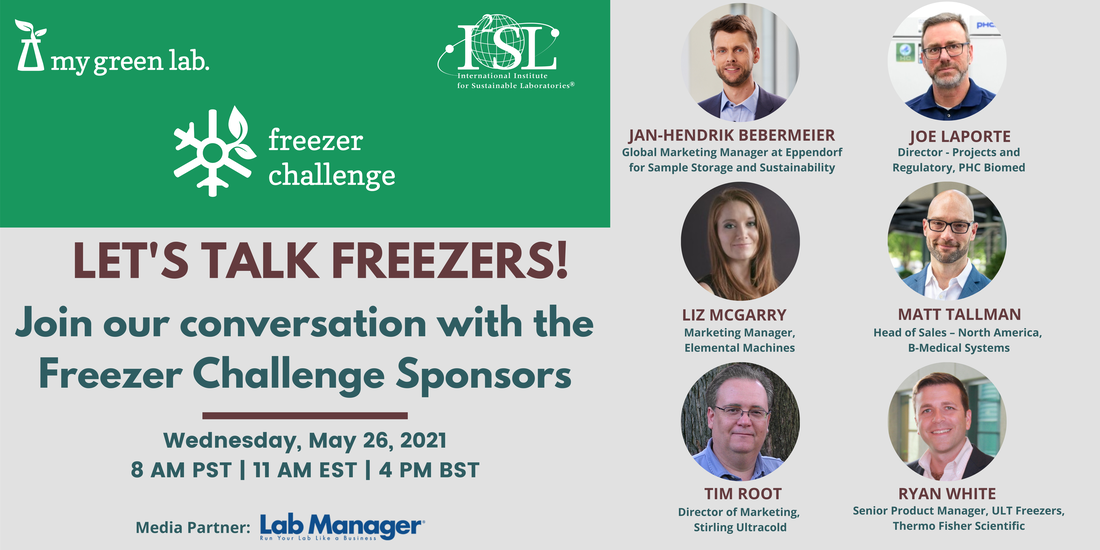
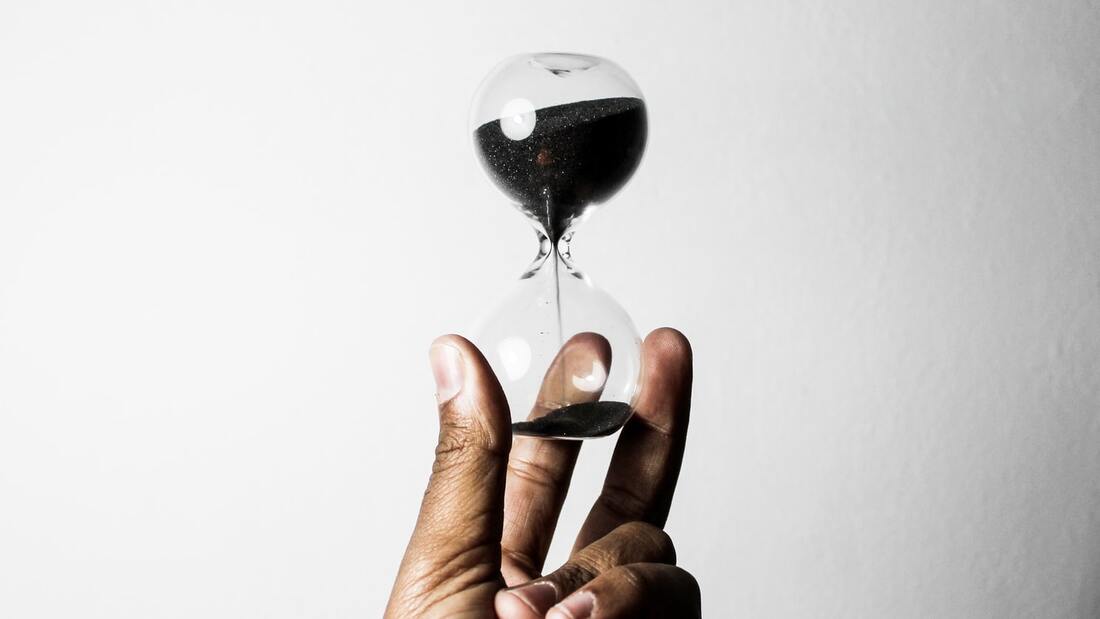
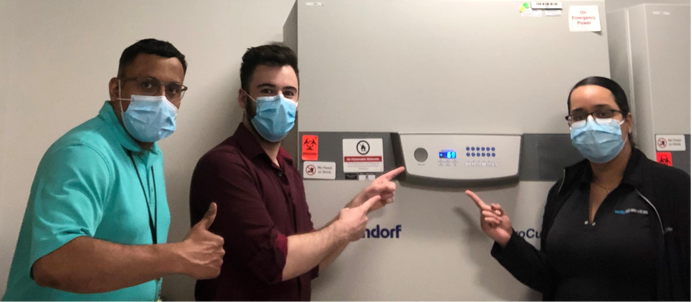

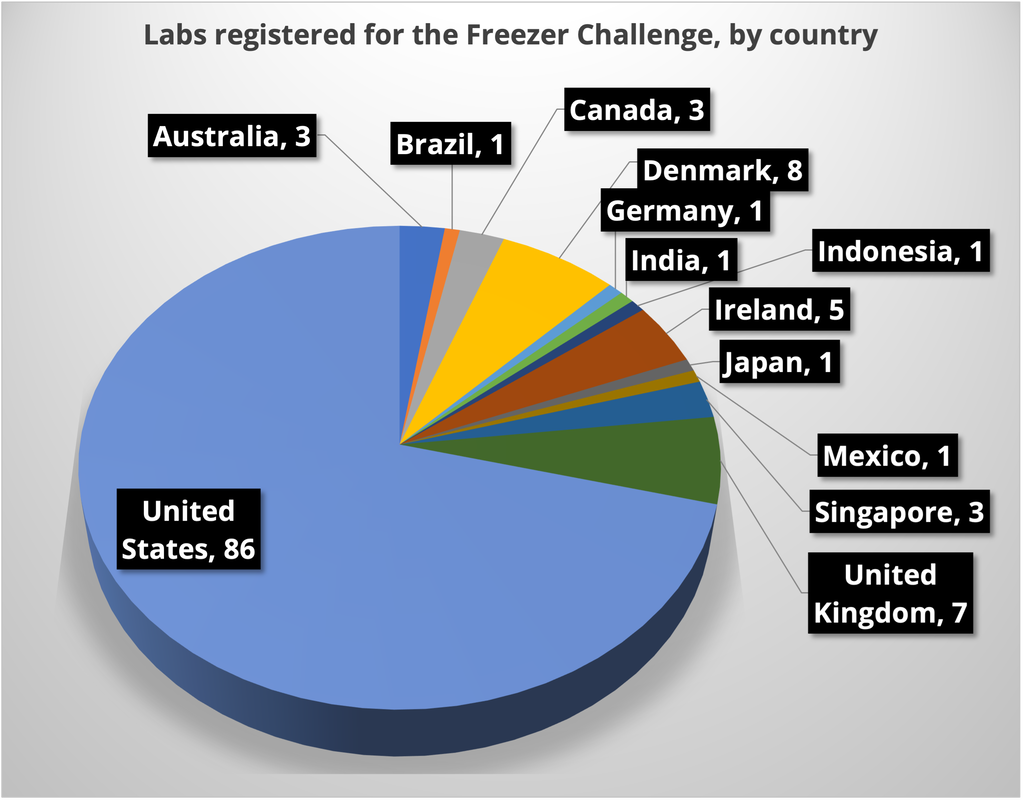
 RSS Feed
RSS Feed

